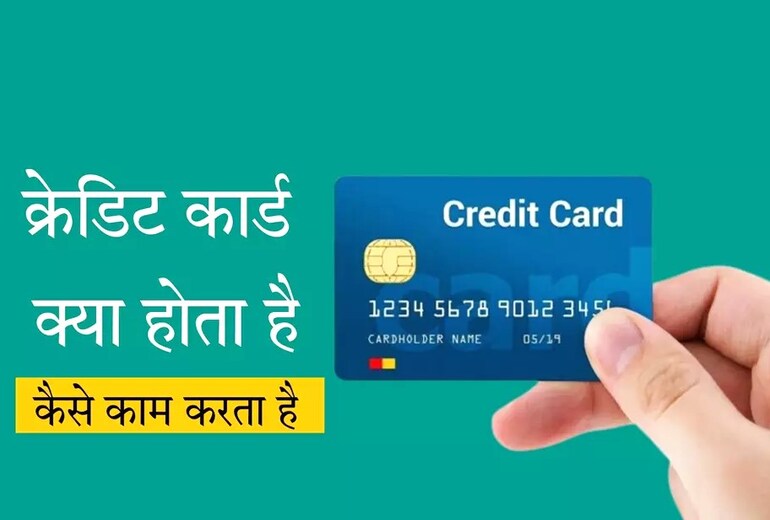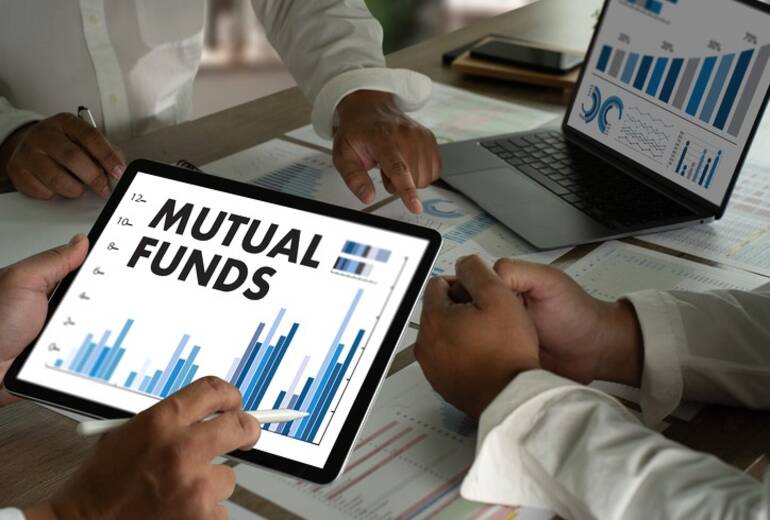What is Credit Card :- Friends, in today’s fast-paced world, the word credit card is heard everywhere. You too must have heard its name. But do you know what a credit card actually is, and how it is used. What are its advantages, and what are its disadvantages, Then why does everyone think that in this world today it is necessary for every person to have a credit card.
Whether you are a student, employer, businessman, or someone who wants to take informed financial decisions. But friends, before taking a credit card, it is very important to understand it well. Which we are going to explain to you today through this article. So let us know what is credit card, how it works. And what are its advantages and disadvantages.
What is Credit Card?
Credit card is a type of payment instrument usually issued by banks or financial institutions. Through this you can buy goods, use services or even withdraw cash from ATM if needed. And you can pay it later. It provides a lending facility, Which means that you can pay the money immediately using a credit card, but you have to repay the amount to the bank or issuer within a certain time.

Friends, when you take a credit card of any bank, it contains 16 digit credit card number like (1234 5678 9012 3456), expiry date like (01/35), credit card holder name like (Rajat Bhandari) and 3 digit CVV number has details like (123). Whenever you register your credit card to make online payments, you have to fill all these things. Then after that an OTP comes on your registered mobile number. After filling this, your payment becomes successful.
Friends, with the help of credit card, you can make any online, offline purchase or bill payment and avail the benefits of reward points, cashback, discounts etc. If you always pay your credit card bill on time and do not withdraw cash from ATM. Then the bank does not charge any interest on your credit card.
Read this also :- How to Earn Money from Blogging?
How to Work Credit Card?
Friends, using credit card properly gives you financial freedom. Till now you have known what a credit card is and now you will know how a credit card works.
- Credit Account: Friends, when you take a credit card from a bank, a credit account is opened in the bank.
- Making purchases: When you make a purchase using your credit card, the bank pays the amount for that purchase and then later adds it to your credit account.
- Credit Card Limit: When you take a credit card from any bank, the bank limits the limit on that card up to a certain amount. For example, if my credit card limit is Rs 1,00,000/- then I can shop or pay any bill up to Rs 1,00,000/-
- Credit Card Statement: When you shop offline or online with your credit card, the bank sends you a statement of that purchase every month as to how much you have to pay for your purchase.
- Monthly Bill: You have to pay your credit card bill every month as per the due date, the bank does not charge you any extra amount if you pay the bill on time. Secondly, you can also pay your credit card bill in installments but you have to pay interest on it.
- Interest and charges: If you do not repay your credit card on the due date given by the bank, the bank charges you interest. There are different types of interest rates but generally these interest rates are much higher than other types. Therefore, you should make your credit card payments on time.
What is Credit Card Limit?
A credit card limit is the maximum amount of money that you are allowed to borrow on a credit card at any given time. It is set by the credit card issuer based on factors like your credit score, income, and overall financial situation.

- Credit Limit vs. Available Credit:
- Credit Limit: The total amount of money you can charge to the card.
- Available Credit: The portion of your credit limit that you have not yet used. For example, if your credit limit is $1,000 and you have spent $300, your available credit is $700.
- Factors Influencing the Credit Limit:
- Credit Score: A higher credit score usually results in a higher credit limit.
- Income: Lenders consider your income to ensure that you can manage repayments.
- Debt-to-Income Ratio: This is the amount of debt you have relative to your income. If you already have a lot of debt, you may receive a lower limit.
- Credit History: A longer and positive credit history (on-time payments, low credit utilization) typically leads to higher credit limits.
- Exceeding the Credit Limit:
- Some credit cards allow you to exceed your credit limit, but this may trigger over-limit fees and could negatively impact your credit score.
- It is generally best to stay well below your credit limit to avoid these fees and maintain a healthy credit utilization ratio (which affects your credit score).
- Impact on Credit Score:
- Credit Utilization: This is the percentage of your credit limit that you are using. Keeping your utilization below 30% is considered good for your credit score.
- Example: If your credit limit is $1,000 and you have a balance of $300, your credit utilization is 30%.
- Credit Limit Increases:
- Over time, your credit card issuer may offer to increase your credit limit based on your responsible usage (e.g., paying on time, maintaining a low balance).
- You can also request a credit limit increase, though the issuer may check your credit report, which can temporarily lower your credit score due to a hard inquiry.
How to use Credit Card? Step by Step Full Information
Friends, to use credit card, you have to follow some precautions and responsibilities. Using a credit card correctly can provide you with many benefits, but using it carelessly can also create financial problems. Till now you have learned what a credit card is and how a credit card works. Now you will know how to use credit card?

1. Make Purchases with the Credit Card
- Swipe or Insert the Card: You can use your credit card to make purchases in stores by swiping, inserting, or tapping the card at the payment terminal.
- Online Purchases: You can also use it for online shopping by entering the card number, expiration date, and security code (CVV).
- Mobile Payments: Many credit cards can be linked to mobile wallets (like Apple Pay or Google Pay) for contactless payments.
2. Track Spending
- Regularly monitor your transactions through the credit card issuer’s app or website. This helps you keep track of your spending and ensure that you stay within your budget.
- Try not to exceed 30% of your credit limit to maintain a healthy credit utilization rate, which positively impacts your credit score.
3. Pay Your Bill on Time
- Pay the Full Balance: Paying off the entire balance before the due date avoids interest charges.
- Minimum Payment: If you cannot pay the full amount, at least make the minimum payment to avoid late fees and damage to your credit score. However, paying only the minimum will result in interest being charged on the remaining balance.
- Set up payment reminders or use automatic payments to ensure you never miss a due date.
4. Understand Interest (APR)
- Interest-Free Grace Period: If you pay off your balance in full by the due date, you won’t be charged interest.
- If you carry a balance from month to month, you’ll be charged interest based on the Annual Percentage Rate (APR), which can be high (often around 15-25% or more).
- To avoid interest, try to pay the full balance whenever possible.
5. Take Advantage of Rewards and Benefits
- Many credit cards offer rewards programs like cashback, points, or travel miles. Use the card strategically to maximize these rewards, such as using it for everyday purchases like groceries or gas.
- Introductory Offers: Some cards offer signup bonuses or 0% interest for a promotional period. Be sure to read the terms and pay off balances before the promotional period ends.
- Extra Benefits: Many cards provide perks like extended warranties, purchase protection, travel insurance, or airport lounge access. Check what your card offers.
6. Avoid Cash Advances
- Cash advances allow you to withdraw cash using your credit card, but they often come with high fees and interest rates that start accumulating immediately.
- Avoid using your credit card for cash withdrawals unless it’s an emergency.
7. Avoid Over-Limit Spending
- Don’t spend beyond your credit limit. Some cards allow you to exceed the limit, but this may incur over-limit fees, and spending close to the limit can negatively impact your credit score.
8. Monitor Your Account for Fraud
- Regularly review your statements for any unauthorized or suspicious transactions. If you spot anything unusual, report it to your credit card issuer immediately to dispute the charges.
- Many credit cards offer fraud protection, ensuring you are not liable for unauthorized purchases.
9. Use for Building Credit
- Using your credit card responsibly can help you build and improve your credit score. Make sure to:
- Pay on time: Payment history is a major factor in your credit score.
- Keep balances low: High balances relative to your credit limit can hurt your score.
- Limit applications: Don’t apply for too many credit cards in a short period, as this results in multiple hard inquiries, which can lower your credit score.
10. Use Emergency Fund Sparingly
- While credit cards can provide flexibility in emergencies (e.g., unexpected medical expenses or car repairs), it’s important not to rely on them for long-term debt. You may end up paying much more in interest.
Advantages of using Credit Card?
- Proper use of a credit card can help you build a strong credit history, which is essential for future financial products like loans and mortgages.
- Many credit cards offer rewards programs, including points, miles, or cash back on purchases. These rewards can add up over time and can be redeemed for travel, merchandise, or statement credits.
- Credit cards often come with protection against unauthorized charges, defective products, or disputes with merchants. Some cards even offer extended warranties and purchase insurance.
- Credit cards can act as a temporary source of emergency funds, allowing you to make essential purchases when cash is not immediately available.
- Unlike debit cards, where funds are immediately deducted, credit cards offer a grace period before you are required to pay off the balance, giving you more flexibility in managing your cash flow.
- Many credit cards include travel insurance and rental car coverage as part of their benefits, which can save you money on purchasing separate insurance policies.
- If your card is lost or stolen, most issuers have strong fraud protection measures in place, limiting your liability for unauthorized purchases.
- Credit cards are widely accepted around the world, making them a useful tool for international travel and purchases.
- Monthly credit card statements provide a clear record of your transactions, helping you track and manage your spending.
Disadvantages of using Credit Card?
- If you don’t pay your balance in full each month, credit card interest rates can be very high, leading to expensive debt that accumulates quickly over time.
- Since credit cards provide easy access to funds, there is a risk of overspending beyond what you can afford. The disconnect between credit and cash can lead to impulsive or unnecessary purchases.
- Carrying a balance from month to month increases your overall debt, which can become difficult to manage. Accumulated debt can negatively impact your financial well-being and credit score.
- Credit cards often come with various fees, such as annual fees, late payment fees, foreign transaction fees, and balance transfer fees. These fees can add up, increasing the cost of using the card.
- Mismanaging a credit card, such as making late payments or maxing out your credit limit, can negatively affect your credit score, making it harder to obtain loans or other credit in the future.
- Credit card companies allow users to make small minimum payments, but doing so can lead to long-term debt. Paying only the minimum each month results in higher interest charges and a slower reduction of your balance.
- Although credit cards offer fraud protection, the risk of unauthorized transactions or identity theft remains. If your card information is stolen, it can be inconvenient and stressful to resolve the issue.
- While rewards programs are an advantage, they can also be complicated. Some have blackout dates, caps on earning potential, or restrictions on how and when you can redeem your rewards.
- Relying on credit cards for everyday expenses without proper budgeting can develop into a habit of living beyond your means, leading to financial instability in the long term.
- The convenience of a credit card can tempt users to make non-essential or luxury purchases that they wouldn’t otherwise consider if paying with cash or a debit card.
Conclusion
Friends, credit card can be a useful tool to manage your finances and improve your credit score, but it is very important to use it properly. Friends, we hope that you know the credit card information like what is a credit card? How does a credit card work, and how to use a credit card? Would have been nice to read about all this. Once you know all our basics, you can use credit cards to your advantage.
If you like our article, then “LIKE” and “SHARE” our Facebook page “AFFILIATE DIGITAL MEDIA”.
If you want to give us any suggestion or have any question related to travel, then please write in the comment box given below.
For more information about religious and tourist places, you must “SUBSCRIBE” to our You Tube Channel PUBLIC GUIDE TIPS







Leave a Reply